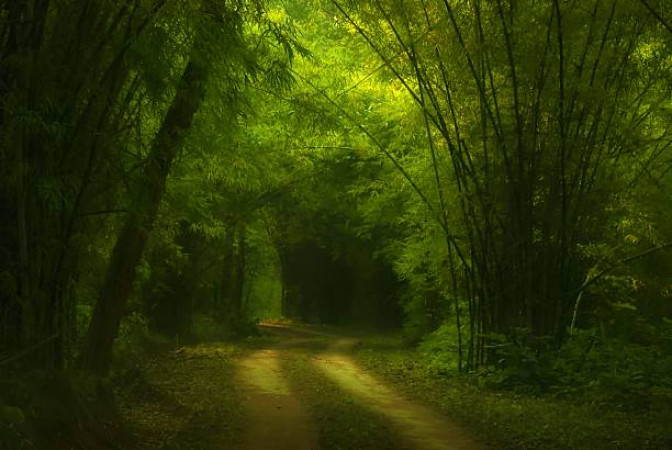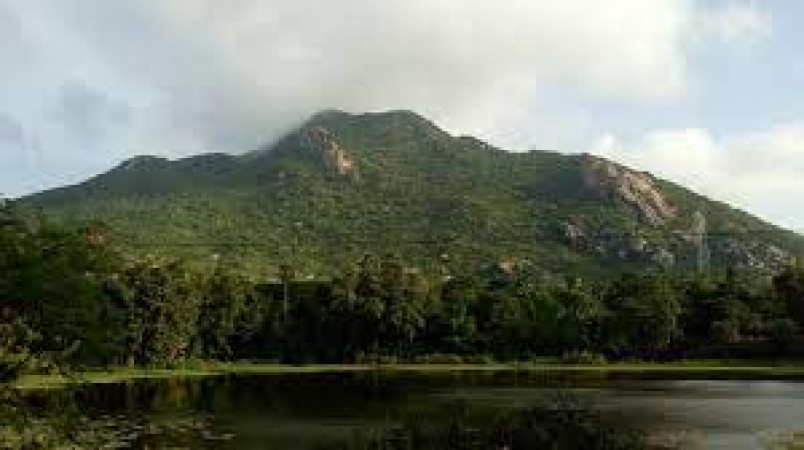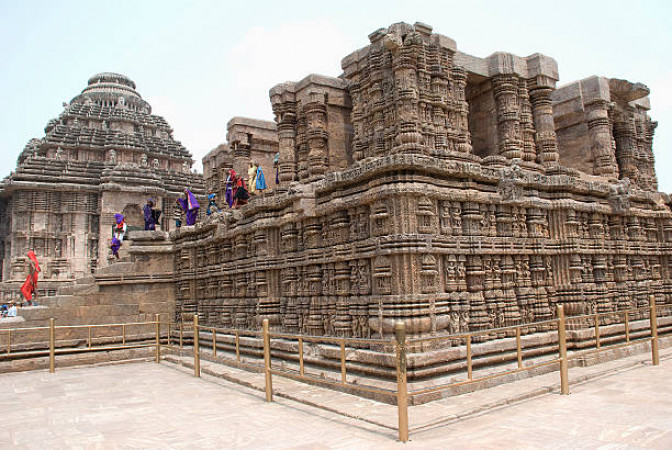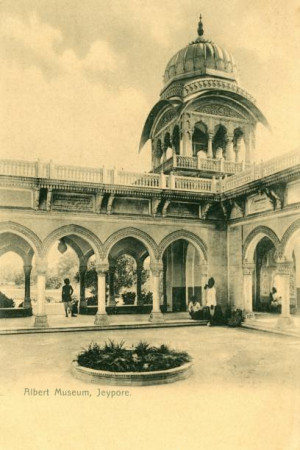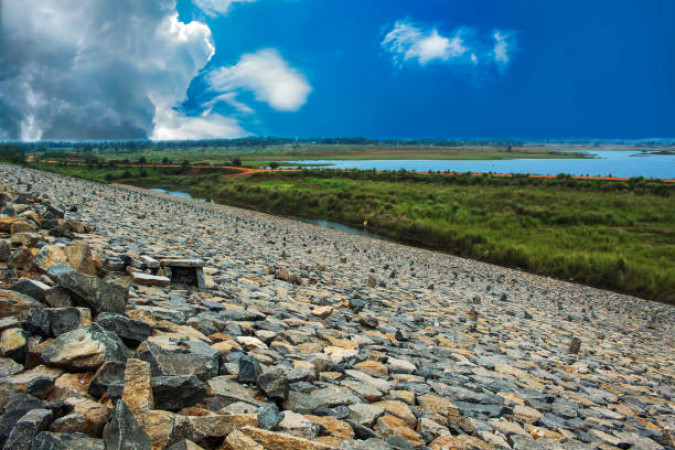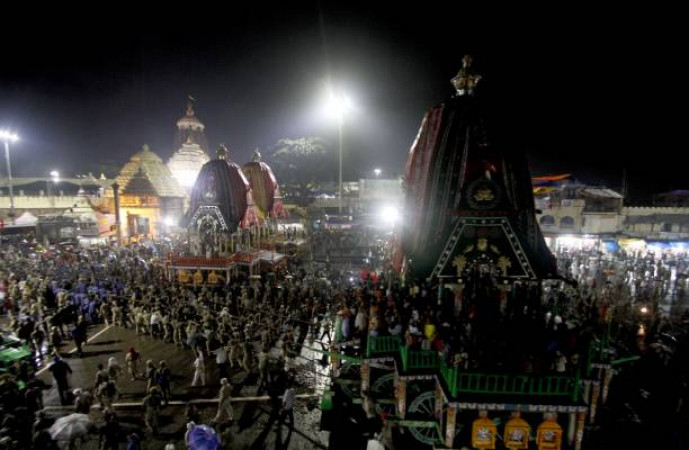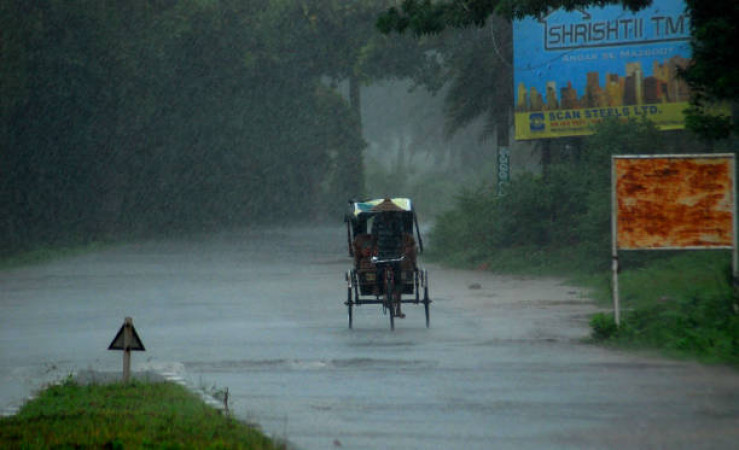Sambalpur Travel Guide
Sambalpur is a city in the western part of Odisha, India, known for its rich historical and cultural significance. Situated on the banks of the Mahanadi River, Sambalpur boasts a vibrant past that dates back to ancient times. The city is famous for its handloom sarees, traditional folk music, and unique Sambalpuri dance forms.Top Attractions in Sambalpur
- Hirakud Dam
- Samaleswari Temple
- Debrigarh Wildlife Sanctuary
- Leaning Temple of Huma
- Ushakothi Wildlife Sanctuary
Sambalpur is Famous for
Handloom sarees and Sambalpuri dance forms.Top Attractions in Sambalpur
- Exploring the Hirakud Dam, one of the longest dams in the world
- Visiting the ancient Samaleswari Temple dedicated to Goddess Samaleswari
- Discovering the wildlife at Debrigarh and Ushakothi Wildlife Sanctuaries
- Witnessing the unique Leaning Temple of Huma
What's Great about Travelling to Sambalpur?
- Experience the rich culture and heritage of Odisha
- Explore natural beauty and wildlife sanctuaries
- Discover traditional handloom weaving techniques
What's Not So Great about Travelling to Sambalpur?
- Limited international connectivity
- Monsoon season may affect travel plans
- Language barrier for non-Oriya speakers
Travel Tips for Sambalpur
- Check visa requirements before traveling
- Prefer local transport options for sightseeing
- Respect local customs and traditions
Important Sambalpur trip information
- Ideal Duration: 3-4 days
- Best Time to Visit: October to March
- Nearby Airports and Railway Stations: Biju Patnaik Airport (Bhubaneswar); Sambalpur Railway Station
Top 4 Places to visit in Sambalpur
FAQ's on Sambalpur
Q1: What is the best time to visit Sambalpur?
The best time to visit Sambalpur is during the winter months from October to March when the weather is pleasant and ideal for exploring the city. Additionally, the famous Sambalpuri textiles and cultural festivals like Sital Sasthi are often held during this time, offering visitors a chance to experience the local culture.
Q2: Do I need a visa to travel to Sambalpur?
Most tourists traveling to Sambalpur will need a valid Indian visa. However, travelers from select countries may be eligible for visa-on-arrival or e-visa options. It is essential to check the latest visa requirements and regulations before planning your trip.
Q3: What are the must-visit attractions in Sambalpur?
Sambalpur is known for its stunning Hirakud Dam, the ancient Samaleswari Temple, and the Sambalpuri handloom and handicraft markets. Don't miss visiting the leaning temple of Huma and exploring the wildlife at the Debrigarh Wildlife Sanctuary for a complete experience of the city.
Q4: Is Sambalpur a safe place to travel?
Sambalpur is generally a safe city for tourists. However, it is advisable to be cautious of pickpocketing in crowded places and to avoid isolated areas at night. As with any travel destination, it is recommended to stay alert and take necessary precautions to ensure a safe trip.
Q5: What is the local currency in Sambalpur and can I use credit cards?
The local currency in Sambalpur is the Indian Rupee (INR). While credit cards are accepted in larger establishments like hotels and restaurants, it is advisable to carry cash for smaller vendors and local markets. ATMs are also widely available in the city for convenient access to money.
Q6: What is the local cuisine like in Sambalpur?
Sambalpur offers a rich culinary experience with traditional Odia cuisine. Must-try dishes include the famous Sambalpuri sweets like Chhena Poda and Rasabali, as well as savory treats like Pakhala Bhata (fermented rice) and Santula (mixed vegetable curry). Vegetarian and non-vegetarian options are readily available to cater to various preferences.
Q7: What transportation options are available in Sambalpur?
Travelers in Sambalpur can choose from various transportation options including auto-rickshaws, cycle rickshaws, city buses, and private taxis. Car rentals are also available for those who prefer self-driving. The city is well-connected by roads and railways, making it easy to navigate and explore the surroundings.
Q8: Are there any cultural norms or etiquette I should be aware of when visiting Sambalpur?
When visiting Sambalpur, it is important to respect local customs and traditions. Dress modestly when visiting religious sites, remove your shoes before entering temples, and always greet people with a smile. Additionally, asking for permission before taking photographs of locals and avoiding public displays of affection are considered respectful gestures in the culture.
Q9: I am a travel agent. How can I buy travel leads of Sambalpur?
Register yourself as a travel agent at agents.tripclap.com and then you can buy travel leads to Sambalpur once your account is approved. For more details contact our support team at +91-8069186564 or support@tripclap.com
